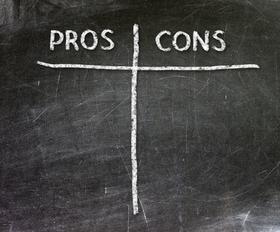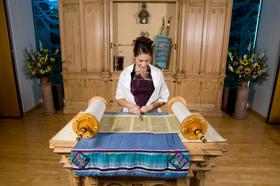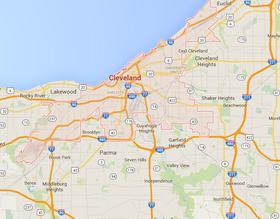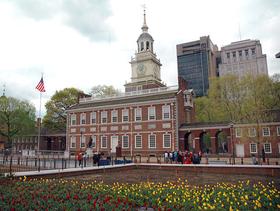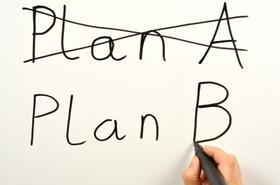Have you ever begun a project only to realize after a while that you didn't know what you were doing? It's like the guy who opens the box with 100 parts. Some assembly is required. Does he read the directions? Probably only when he gets stuck.
When you set out to choose a private school for your child, you need a clear road map for the process. You also need to understand that this is a major project that will consume a substantial amount of your valuable time.
How much time will it take?
* Researching schools online: 20-30 hours spread out over 4-6 weeks. This task can be done in the comfort of your own home on your own time.
* Visiting out-of-town schools: 36-60 hours spread out over 3 or 4 visits. The amount of time consumed by travel is the wild card here. The actual campus visit will usually include an interview with the admissions staff. Allow about an hour for testing.
* Visiting local schools: 10-15 hours spread out over 2 or 3 visits. Interviews and any testing the schools require will add an hour or two.
Signs that you may be doing it wrong
As you can see, choosing a private school is a major project. Get it wrong, and your child will be very unhappy and hate her school. It's also possible that your child won't even get into a school. So, before you get that sinking feeling that you are doing it all wrong, let's look at some signs pointing to that conclusion.
Peter Baron discusses how to find a private school.
1. Not using an educational consultant.
You are not using the services of an educational consultant? I know they are not cheap. But you need expert advice for such a significant decision. It's like buying a house or writing a will. You wouldn't make those kinds of decisions and sign contracts without an attorney's advice, would you?
The difference between you and the consultant is that she knows her schools. She knows the admissions staff. She knows the schools' reputations. She's connected and knows what's going on. That's what she does for a living. You may think a particular school is an excellent fit for your child. Indeed, it might well be. But what happens when you discover that you are missing several important aspects? Your consultant will know what the school offers, but even more importantly, she will have your requirements in mind. She will highlight the doable schools on your list and those she doesn't think are a good fit.
Selecting schools when you use a consultant becomes less of a game of chance and more precise. The three or four schools on your shortlist will be excellent matches. One of the schools, possibly two, will admit your child. Others will be a bit of a reach but doable nonetheless.
Now contrast your consultant's shortlist with the one you will have drawn up. Without a consultant. You will probably have a couple of very competitive schools on your list. You know, the kinds of schools that have 2,000 applicants for 200 places. They're like Harvard or Princeton. Lots of people want to go to those great schools. But they have limited places. Fortunately, Harvard and Princeton are not the only games in town. The same thing is true of private schools. There are hundreds of excellent private schools which are not household names. You may never have heard of them. But they are well-known to your consultant. So, spend the money on an educational consultant. You will not regret it.
2. Leaving things to the last minute.
The next thing many people get wrong is leaving the project until the last minute. Choosing a school can take 18 months, from the day you begin looking until the first day of school. Most families will start the process in the spring of the year before they expect their child to begin school. If you leave things until late fall, the entire project becomes a scheduling nightmare unless it is the only thing on your agenda. But even then, you really should start no later than summer. Visiting schools takes time. The logistics and scheduling can be complicated. Allow yourself plenty of time.
3. Making assumptions about what is taught and how it is taught.
Another thing folks get wrong is assuming that what the school teaches and how it teaches is in harmony with their beliefs and philosophy. While it is true that every school is teaching the same subject matter, the philosophy of teaching and the approach will vary from school to school. Why don't they all teach the same way? Because they are private schools. They can legally do their own thing. Each school is independent and unique. That's the essence of a private school.
Here is a quick look at The Blake School.
To avoid any issues and disagreements, take time to observe a class. Read the academic course catalog carefully. Review the list of schools to which their graduates matriculated. Read the school's mission statement carefully. Listen to the admissions staff carefully. They will be justifiably proud of their school's philosophy. Is what you are reading and hearing in accord with your personal beliefs? Remember: once you sign the contract, there's no turning back. At least not easily, and certainly not without penalties. Assume nothing. "Trust but verify."
4. Verifying that the non-academic programs meet your requirements.
Finally, many parents don't bother carefully checking out the sports and extracurricular activities. Well-funded and properly organized athletic programs and extracurriculars are essential to your child's private school experience. They build character and teach teamwork. They instill confidence and strengthen the bonds of friendship. Private school classmates tend to stick together and keep in touch long after graduation. A lot of that bonding occurs on the playing fields and on the theater stage. Don't stint on inspecting the athletics and extracurriculars.
5. Not investigating all your financial options.
Some families will have no difficulty funding $30,000 for day school or $60,000 for boarding school—more power to them. However, we must carefully weigh our options when paying for our children's private school education. If you have sufficient income and need to spread the payments out over 10 or 12 months, there are tuition payment plans that will make that possible. Banks and financial organizations will make loans if you need to borrow to pay those tuition bills.
If you need financial aid, don't hesitate to ask. Start the application for financial assistance when you meet with the schools. Be honest with the schools. Have your documentation in order so that you will have everything you need when you complete your PFS (Parent's Financial Statement).
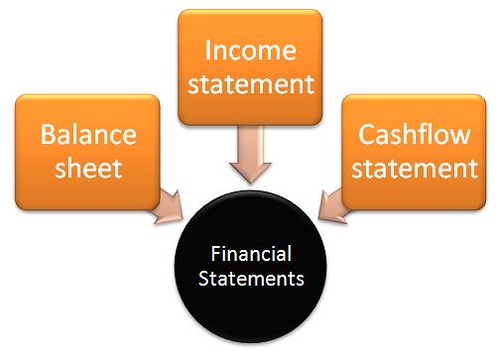
![]() by NVarchitect
by NVarchitect
Most private schools have generous financial aid programs. This is because they want a diverse student body. Private schools are not just for rich families anymore. Indeed, several private schools will waive tuition for families meeting specific income benchmarks. Again, ask. Get the details for each school. Do not assume that School B's financial aid program will be the same as School A's. Each private school is independent and unique.
There are several scholarships for private school education. Ask. Always ask. There are also several free private schools. Investigate these and determine if you meet the admission criteria.
Financial aid directors from six private boarding schools (The Forman School, Gould Academy, Proctor Academy, Tilton School, Vermont Academy, and Westover School) offer families advice on the financial aid process.
The bottom line is that choosing a private school is a major project. Much of your success in finding the best private school for your child will hinge on your ability to manage this project efficiently and effectively.
Questions? Contact us on Facebook. @privateschoolreview



















